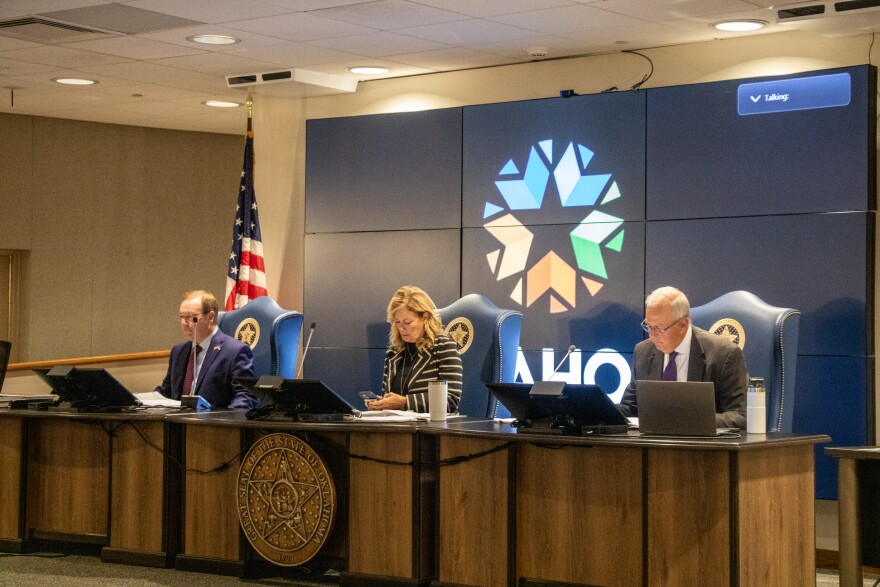Corporation Commissioners are balancing a high projected energy demand with a request that would add dollars to many Oklahomans’ monthly bills for new generation projects years before completion.
The state’s largest utility company, OG&E, seeks to build two new natural gas turbines at its Horseshoe Lake power plant, totaling about $506 million. It’s also pursuing two purchase agreements with an energy storage facility and a power plant in Kiowa.
Under Senate Bill 998, which became law without Gov. Kevin Stitt’s signature, the commission is required to approve construction-work-in-progress (CWIP) for new or expanded natural gas projects.
The practice permits companies like OG&E to finance infrastructure by charging rate payers during construction. The law doesn’t apply to other sources of energy.
The company wants to add close to 60 cents to monthly bills starting in 2026, increasing the amount to more than $4 by 2031, should its application be approved.
Representatives from the company said beginning the charges ahead of the project’s completion would save customers $176 million in interest over the life of the project.
Commissioners decided to delay their vote Wednesday, opting to explore options to lessen the overall financial burden for customers before making a decision to approve OG&E’s settlement agreement.
“The math is so absolutely clear that CWIP treatment is a detriment to rate payers, where if they enjoy any savings at all, it's going to be 25 years and beyond before they get that savings,” Commissioner Todd Hiett said. “ Those customers may not be customers, they may not be alive. Those businesses may not be alive.”
The commissioners discussed using agreements between utilities and high-consumption customers, like data centers, to protect individual residents. The large load tariffs require companies to take a bigger share of energy costs than households or small businesses.
“The statute says that we have to allow CWIP,” Chairman Kim David said. “It's within our purview to decide how the CWIP is done.”
The meeting came one day after Commissioner Todd Hiett appeared at a state House interim study on energy needs. After clarifying he was not speaking on behalf of the commission, Hiett told legislators that Senate Bill 998 erodes the regulators’ decision-making authority.
“ The commission will not be able to completely fulfill their constitutional duty, in my opinion, because they will have to meet the statute to allow the utility to start collecting from the rate payers for financing cost,” he said.
Hiett suggested the legislature could introduce a clean-up bill requiring utility companies to prove a financial need for CWIP.
“Otherwise, that burden really should stay on the utility because it's the utility making the investment,” he said.
The commissioners agreed to meet again on Nov. 13.
StateImpact Oklahoma is a partnership of Oklahoma’s public radio stations which relies on contributions from readers and listeners to fulfill its mission of public service to Oklahoma and beyond. Donate online.









